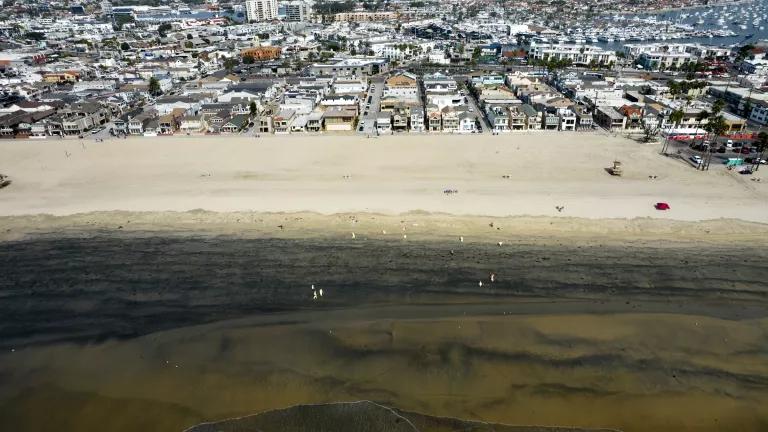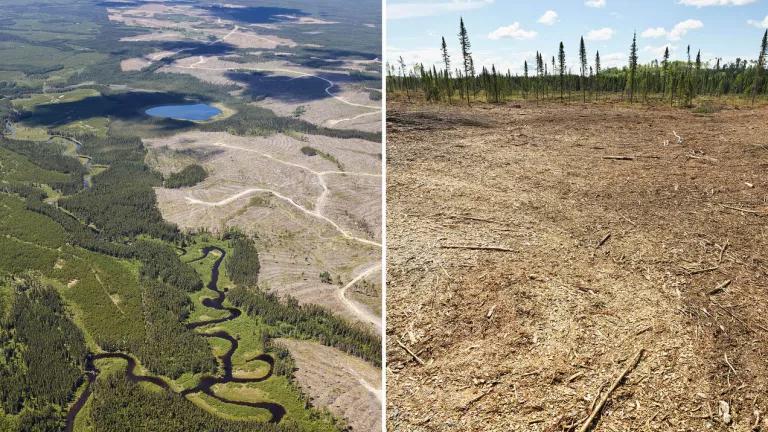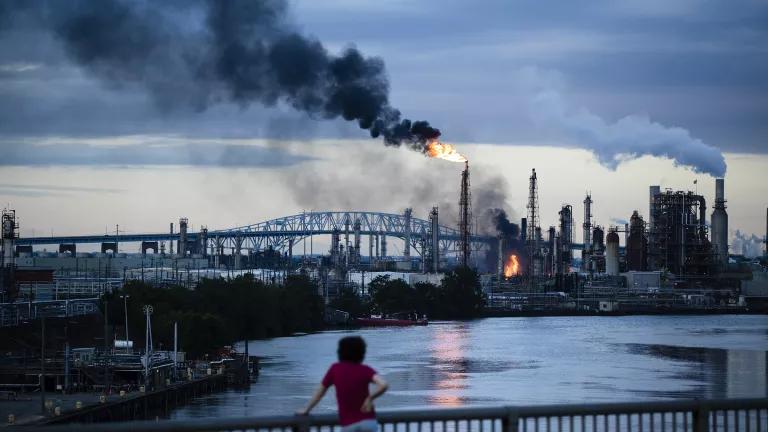Alberta Invests Billions to Build Polluting Keystone XL
Despite efforts to prop up the dirty tar sands pipeline with subsidies, our court battle to stop the project is far from over.

Pipes stacked in Mont Belvieu, Texas, waiting for approval of the Keystone XL pipeline.
Despite efforts to prop up the dirty tar sands pipeline with subsidies, our court battle to stop the project is far from over.
The government of Alberta announced today that it would directly invest more than $1 billion into the dirty Keystone XL pipeline and offer another $4.2 billion in loan guarantees—a subsidy that has encouraged TC Energy to move forward with the long-beleaguered project. The news comes on the heels of a decision by the Canadian province to lay off 20,000 public sector workers.
The company’s commitment to the project remained uncertain as recently as TC Energy’s latest quarterly meeting earlier this month, when it admitted that it was unable to make a final investment decision on Keystone XL. With government backing, the company now hopes to start construction as soon as April.
“The embattled Keystone XL tar sands pipeline has always been a bad deal for both Alberta and the United States,” says Anthony Swift, director of NRDC’s Canada Project. “Rather than invest in its workers, the government of Alberta is putting billions of dollars into a project that makes no sense in a world committed to transitioning to clean energy.”
The center of a ping-ponging legal and legislative battle for more than a decade, the proposed pipeline would carry 830 million barrels of tar sands oil per day from Canada to oil refineries on the Gulf Coast, threatening water, wildlife, and public health along the way. The fossil fuel infrastructure would also lock in more climate-devastating carbon pollution.
In 2015, President Obama agreed the risks were too high and vetoed the project, but President Trump revived it soon after taking office. The Trump administration has since made numerous attempts to fast-track its approval.
But despite Canada’s latest investment, Keystone XL still faces significant obstacles. Indigenous communities, farmers, and ranchers along the pipeline’s route continue to protest to protect their land and health, and groups like NRDC remain committed to fighting the pipeline’s illegally granted federal permits in court.
“Keystone XL would put our landowners, communities, and climate at risk,” Swift says, “and Premier Kenney’s decision to throw good money after bad will not change that fact.”


